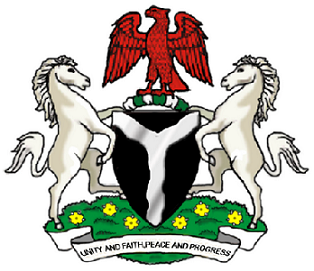
This certainly will not be the best of times for state governors and other political office holders as accruals into the federation account took a nosedive in July 2014. This has resulted in about 20 percent reduction in the funds available for distribution by the Federation Accounts Allocation Committee (FAAC) for the month of July but distributed last month.
Global oil prices have fallen about $10 a barrel since mid-June, when prices hit nine-month highs on concerns that an insurgency in Iraq would lead to production disruptions. Although international unrest continues to escalate, traders have closed out their bets on higher oil prices, as global oil supplies have remained ample.
FAAC distributed over N1 trillion to the three tiers of government and other beneficiaries of the federation account last in July but the figures fell sharply to N826,623,824,382.94 last month.
An Economic Confidential research revealed that oil prices are likely to continue a downward slope mainly because of the long period of stable high prices, which encouraged increase in drilling activities across countries.
For instance, oil prices were fairly stable from 1986 through 2001, averaging just $20 per barrel when it started rising, spiking to $134 just as the recession began. The price of oil has been above $80 for the past two and a half years.
The rising prices were accompanied by a dramatic increase in exploration activity. Characteristically, during the era of low prices, the number of drilling rigs in operation around the world was 1,900 on average which incidentally has doubled for nearly three years.
Economic hiccups in Europe and the United States make a boom unlikely and increase in oil production capacity will therefore grow faster than demand and this will continue to pull prices down.
Nigeria’s case was even compounded by a force majeure declared by Shell, a series of shutdowns of trunk lines and pipelines at various terminals as well as the substantial decline experienced by the Federal Inland Revenue Service (FIRS) in Companies Income Tax collection.
Figures show that Akwa Ibom got the highest allocation with a total of N25,674,171,026.84 with Delta and Rivers states following with N20,387,909,485.13 and N18,912,042,013.24 respectively. Lagos State followed with 15,697,584,052 and Kano was in the fifth position with N14,205,529,398.3.
Other states among the top earners are Bayelsa with N14,050,417,664.34, Katsina N10,715,313,503.34, the tempestuous state of Borno got N9,638,991,699.74 and Oyo which got N9,613,336,952.18.
As usual, the low earners remain constant with Ebonyi State getting the lowest with of N5,358,664,006.9. Gombe State got N5,461,772,717.42 and Ekiti state also got relatively low revenue of N5,574,782,414.11. Nassarawa State returned to Lafia with a cheque of N6,039,619,899.44 Kwara state N6,260,800,873.84 and Taraba N6,700,941,921.53.
July FAAC Disbursement At A Glance
Statutory revenue shared – N725,607,149,033.98
VAT – N65,467,439,657.53
SURE-P – N35,549,235,691.43
Total revenue shared for the month – N826,623,824,382.94
Top Nine Earners
Akwa Ibom- N 25,674,171,026.84
Delta – N20,387,909,485.13
Rivers- N18,912,042,013.24
Lagos – N15,697,584,052
Kano – N14,205,529,398.3
Bayelsa – N14,050,417,664.34
Katsina – N10,715,313,503.34
Borno – 9,638,991,699.74
Oyo – 9,613,336,952.18
Lowest Six Earners
Ebonyi = 5,358,664,006.9
Gombe = 5,461,772,717.42
Ekiti = 5,574,782,414.11
Nassarawa= 6,039,619,899.44
Kwara = 6,260,800,873.84
Taraba = 6,700,941,921.53
FG = 272,876,943,468.64
FIRS = N6,221,255,922.28
NCS = 3,622,555,063.25
